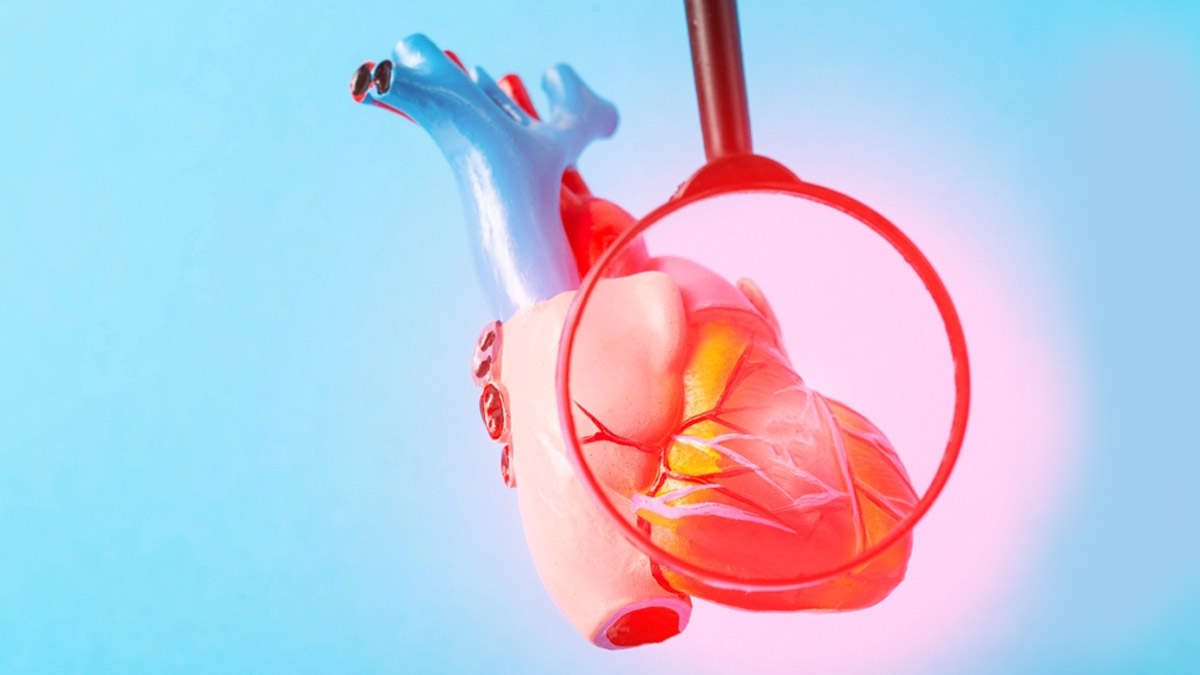
Cholesterol and inflammation are two critical factors in cardiovascular health, often discussed separately. However, there is a complex interplay between the two, revealing that inflammation can significantly influence cholesterol levels and vice versa. In this article, Dr Ravi Shankerji, MBBS, MD, Internal Medicine, Apollo Spectra Hospital, Bangalore, explains the link between inflammation and cholesterol and how you can manage it effectively.
Table of Content:-

Cholesterol is a fatty substance essential for building cell membranes, producing hormones, and synthesising vitamin D. It travels through the bloodstream in lipoproteins, mainly Low-Density Lipoprotein (LDL) and High-Density Lipoprotein (HDL). LDL, often labelled as 'bad' cholesterol, can lead to plaque buildup in the arteries, whereas HDL, also known as ‘good’ cholesterol, helps remove cholesterol from the bloodstream.
According to a 2015 research, there is an association between the surge in cholesterol and a rise in inflammatory proteins produced by the immune system.
Role of Inflammation

Inflammation is the body's reaction to perceived threats or infections. Acute inflammation is the body's natural response to injury or infection, like when one gets a cut or catches a cold. It's a short-term process that helps the body fight off invaders and heal.
“Chronic inflammation, on the other hand, is a long-term, low-grade inflammation that can cause obesity, diabetes, and autoimmune illnesses. Chronic inflammation is the type to be concerned with, regarding cholesterol levels and overall health," added Dr Shankerji.
Also Read: Tired All Day? Expert Explains Chronic Inflammation And How To Manage It
Connection Between Inflammation and Cholesterol
“There is a bidirectional relationship between inflammation and cholesterol. Inflammation can alter cholesterol metabolism, leading to increased LDL levels and decreased HDL levels. Conversely, high levels of LDL cholesterol can trigger inflammatory responses in the arteries, creating a vicious cycle that exacerbates cardiovascular risks”, highlighted Dr Shankerji.
- Inflammation also creates dense LDL molecules, which turn into plaque deposits more easily causing the arteries to narrow and stiffen. The immune response to oxidised LDL is inflammatory, perpetuating arterial damage and increasing the risk of heart attack and stroke.
- HDL transfers cholesterol from the arteries to the liver for elimination, reducing the potential risks associated with it. However, chronic inflammation can impair HDL's protective functions, reducing its ability to remove cholesterol effectively.
- High cholesterol levels can contribute to systemic inflammation by promoting the release of pro-inflammatory cytokines. This inflammation further deteriorates lipid metabolism, creating a harmful feedback loop.
Also Read: Cholesterol Inside Heart And Leg Arteries: Expert Lists Warning Symptoms You Shouldn't Ignore
Managing Inflammation and Cholesterol
Effective management of both inflammation and cholesterol is crucial for maintaining cardiovascular health. Here are some strategies listed by Dr Shankerji that you should follow:

- Maintain a healthy diet incorporating anti-inflammatory foods, focusing on whole, unprocessed foods high in antioxidants, such as fruits, vegetables, legumes, whole grains and healthy fats like nuts, seeds, and avocados.
- Avoid trans fat, refined sugar, and processed food that can increase inflammation and LDL cholesterol.
- Exercise reduces inflammation by promoting healthy blood flow and reducing fat tissue. Physical activity helps improve cholesterol levels by increasing HDL and lowering LDL.
- Excess weight, particularly around the abdomen, is linked to higher levels of inflammation and cholesterol. It is possible to mitigate these risks by achieving and maintaining a healthy weight through diet and exercise.
- Smoking exacerbates inflammation and damages blood vessels, leading to higher cholesterol levels. Quitting smoking improves cardiovascular health significantly.
- Chronic stress can elevate inflammation and cholesterol levels. Practising mindfulness, meditation, and yoga can help manage stress effectively.
Bottomline
Dr Shankerji concluded, “The interplay between inflammation and cholesterol is a crucial factor in cardiovascular health. It leads to the production of chemicals that build cholesterol in arterial walls, leading to atherosclerosis and heart issues. In some cases, lifestyle changes alone are not enough to achieve success. To prevent high cholesterol, individuals must consult with a doctor for personalised treatment options and adopt a healthy diet with anti-inflammatory foods, stay active, and manage stress effectively.”
[Disclaimer: This article contains information provided by an expert and is for informational purposes only. Hence, we advise you to consult your expert if you are dealing with any health issues to get the necessary treatment.]
Also watch this video
How we keep this article up to date:
We work with experts and keep a close eye on the latest in health and wellness. Whenever there is a new research or helpful information, we update our articles with accurate and useful advice.
Current Version